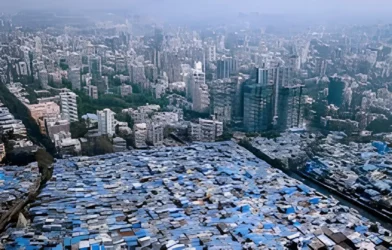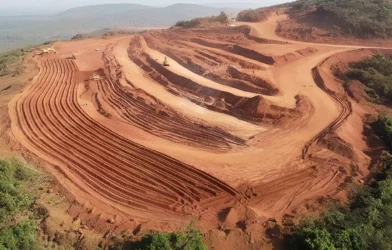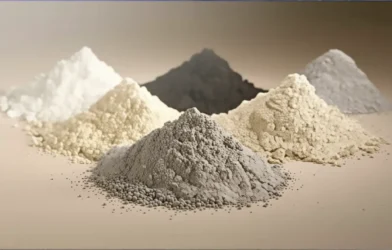Ocean Bound Plastic in India is one of the most pressing environmental challenges of our time. Defined as plastic waste found within 50 km of coastlines that is at risk of entering the ocean if not managed properly, OBP is a major contributor to marine pollution. With its long coastline and rapidly growing plastic consumption, India is both vulnerable to the problem and uniquely positioned to lead solutions. Today, a new wave of Indian companies — from recycling pioneers to supply chain innovators — are turning OBP from a threat into an opportunity for sustainability, jobs, and circular growth.
Why Ocean Bound Plastic Matters ?
Every year, millions of tonnes of plastic enter oceans, damaging ecosystems and even entering the food chain through microplastics. According to estimates, India contributes a large share of mismanaged plastic waste, much of which originates near rivers and coastal areas. Tackling OBP is therefore central not just to environmental protection but also to India’s ESG and sustainability journey.
Indian Companies Leading the Fight Against OBP (Ocean Bound Plastic) :
- Race Eco Chain Ltd. : Race Eco Chain is building an ESG-compliant supply chain for recyclables across India. By working with 300+ suppliers and conducting third-party ESG audits, Race ensures that collection of ocean-bound plastic and other dry waste is traceable, sustainable, and circular. Race is also investing in forward integration projects to produce PET flakes, strengthening India’s recycling ecosystem.
- Rudra Ecovation Ltd. : Rudra Ecovation runs India’s only integrated plastic recycling facility with a capacity to recycle 8.8 million PET bottles every day. By sourcing plastic waste, including OBP, Rudra ensures large-scale recycling into rPET and other sustainable materials, reducing dependence on virgin plastic.
- Lucro : Lucro specializes in recycling LDPE, LLDPE, PP, and HDPE ocean-bound plastic into high-quality recycled granules and packaging solutions. Their model helps brands cut down on virgin plastics while supporting circular packaging.
- Dalmia Polypro : Dalmia Polypro focuses on recycled PET and polyester fibres, giving ocean-bound plastic a new life in mainstream manufacturing, from textiles to packaging.
- Polygenta Technologies : Polygenta is transforming OBP into sustainable yarn, supplying global fashion and textile brands committed to reducing their environmental impact.
- Alliance Fibres :Alliance Fibres recycles ocean-bound plastic into polyester fibre, directly serving India’s textile and industrial sectors.
- Plastic for Change :Plastic for Change is a social enterprise that organizes coastal plastic collection and empowers waste pickers. By channeling OBP into certified recycling streams, it combines sustainability with social impact.
- Mon Export :Mon Export creates eco-friendly bags and accessories from OBP, proving that sustainability can be stylish and consumer-driven.
- Shree Renga Polyester Pvt Ltd & Shobikaa Impex Pvt Ltd :Both are OBP-certified organizations contributing to India’s recycling infrastructure with verified and traceable recycling practices.
From Pollution to Opportunity
While 70% of recyclable dry waste in India still goes uncollected or ends up in landfills and waterways, these companies are showing that OBP can be turned into value. By integrating OBP into their operations, they:
-
- Reduce marine pollution
-
- Strengthen circular supply chains
-
- Create green jobs
-
- Help brands meet global ESG and EPR compliance
- Build India’s reputation as a sustainability leader
The Road Ahead
As global brands increasingly demand certified recycled content and governments continue to tighten sustainability regulations, Indian companies are stepping up to meet the challenge. Ocean-bound plastic in India is no longer just an environmental concern — it has evolved into a platform for innovation, ESG leadership, and global competitiveness. The shift is also being fueled by consumer awareness, with buyers and investors alike rewarding companies that demonstrate genuine commitment to circular practices.
From Race Eco Chain’s supply chain digitization and ESG-compliant audits, which bring traceability and accountability to waste collection, to Rudra Ecovation’s large-scale recycling capacity capable of processing millions of bottles daily, the progress is significant. Alongside them, pioneers such as Lucro, Polygenta, Alliance Fibres, Dalmia Polypro, and Plastic for Change are integrating OBP into packaging, textiles, and community-based recycling models. Each company represents a different piece of the puzzle — collection, processing, innovation, and product development. Looking ahead, the momentum is likely to accelerate. As Extended Producer Responsibility (EPR) norms expand and more global supply chains require OBP-certified inputs, Indian companies will be well-positioned to scale. By investing in technology, certification, and innovative business models, India can transform from being one of the largest generators of mismanaged plastic waste to a global hub for ocean-bound plastic recycling and sustainable solutions.
In short, the fight against OBP in India is no longer just about cleaning coastlines — it is about creating long-term economic, environmental, and social value.
Disclaimer : This article is for informational purposes only. EqMint does not endorse any specific company mentioned herein. All company names, brands, and certifications belong to their respective owners. The information provided is based on publicly available data and industry reports, and may not represent the full scope of activities of the companies discussed.









